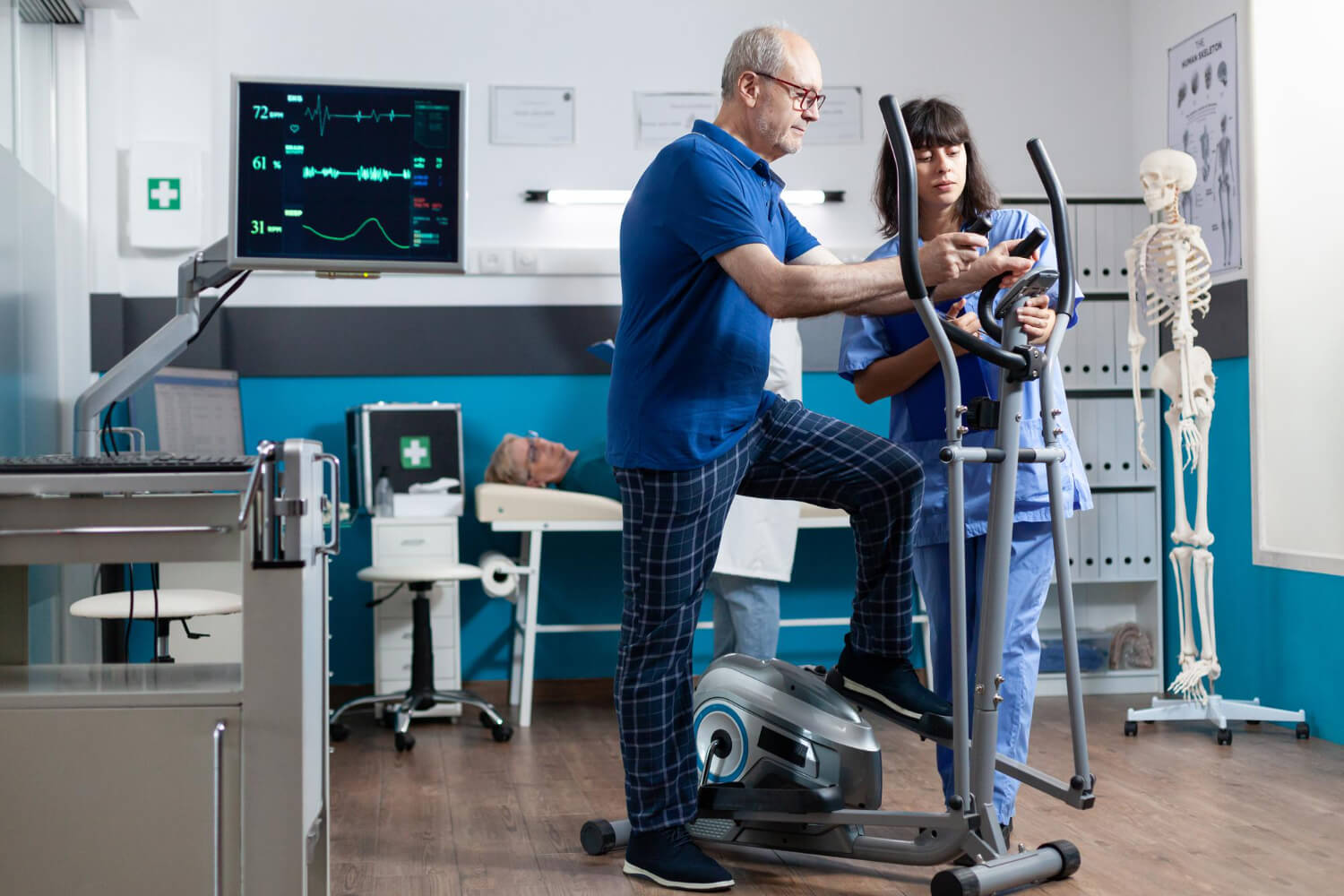
Neuro rehabilitation is a vital process for individuals recovering from neurological conditions such as strokes, traumatic brain injuries, and spinal cord injuries. Each person’s journey is unique, and so are their recovery needs. That’s why personalized neuro rehabilitation plans are essential for optimizing recovery outcomes and enhancing quality of life. This blog will explore the importance of individualized care in neuro rehabilitation and how tailored plans can significantly impact recovery.
The Importance of Personalization in Neuro Rehabilitation
Personalizing neuro rehabilitation plans involves customizing treatment based on individual needs, goals, and circumstances. Factors such as the type and severity of the injury, physical and cognitive capabilities, personal preferences, and emotional well-being all play a crucial role in designing effective rehabilitation strategies.
Benefits of Personalized Neuro Rehabilitation Plans
- Enhanced Recovery Outcomes: Personalized plans can lead to more efficient recovery. By focusing on the specific areas that need improvement, rehabilitation can be more targeted, allowing patients to achieve their goals more effectively.
- Increased Patient Engagement: Patients with a say in their treatment plans are more likely to be invested in the process. Personalization encourages active participation, fostering motivation and commitment to rehabilitation.
- Holistic Approach to Care: Individualized plans can address physical challenges and the cognitive, emotional, and social aspects of recovery. This holistic approach helps achieve a balanced and comprehensive recovery.
- Improved Quality of Life: Tailored rehabilitation can enhance overall well-being. By focusing on the most important goals for each patient, personalized plans can lead to greater satisfaction and a sense of accomplishment in their recovery journey.
Components of a Personalized Neuro Rehabilitation Plan
Creating an effective personalized neuro rehabilitation plan involves several key components:
1. Comprehensive Assessment
A thorough assessment is the foundation of any personalized plan. This should include:
- Medical History: Understanding the patient’s medical background, including the type and severity of the neurological condition.
- Physical Evaluation: Assessing strength, coordination, balance, and mobility.
- Cognitive Evaluation: Evaluating cognitive functions such as memory, attention, and problem-solving skills.
- Emotional Assessment: Identifying emotional challenges, coping mechanisms, and support systems.
2. Goal Setting
Setting clear, achievable goals is crucial for motivation and focus. The goals should be:
- Specific: Clearly defined and focused on particular areas of improvement.
- Measurable: Quantifiable to track progress over time.
- Achievable: Realistic given the patient’s abilities and circumstances.
- Relevant: Aligned with the patient’s personal interests and life context.
- Time-Bound: Set within a specific timeframe to foster accountability.
3. Customized Treatment Strategies
Based on the assessment and goals, rehabilitation professionals can develop customized treatment strategies that may include:
- Physical Therapy: Tailored exercises and activities to improve strength, balance, and mobility.
- Occupational Therapy: Strategies to enhance daily living skills and promote independence.
- Speech Therapy: Techniques to improve communication and cognitive-linguistic abilities.
- Cognitive Rehabilitation: Personalized exercises to target specific cognitive deficits.
4. Integrative Approaches
Incorporating various therapeutic modalities can enhance the effectiveness of rehabilitation. Considerations might include:
- Technology-Assisted Therapy: Using virtual reality or robotic devices to simulate real-life scenarios to practice skills safely.
- Mindfulness and Relaxation Techniques: Integrating stress-reduction practices can help improve emotional well-being and resilience.
- Nutritional Support: Collaborating with nutritionists to address dietary needs that can impact recovery and overall health.
5. Ongoing Monitoring and Adjustments
A personalized neuro-rehabilitation plan is not static. Regular monitoring and adjustments are essential to:
- Track Progress: Continuously assess the patient’s progress toward their goals and modify the treatment plan as necessary.
- Address New Challenges: Be responsive to any new challenges that may arise during rehabilitation.
- Celebrate Milestones: Recognizing and celebrating progress boosts morale and motivation.
Collaboration and Communication
Creating an effective personalized neuro rehabilitation plan requires collaboration among healthcare professionals, including neurologists, physical therapists, occupational therapists, speech-language pathologists, and psychologists. Open communication between the patient and the rehabilitation team is essential to ensure the plan remains aligned with the patient’s evolving needs and goals.
The Role of the Patient and Family
Involving the patient and their family in rehabilitation is crucial for success. Here’s how they can contribute:
- Active Participation: Encourage the patient to engage in their treatment plan and provide feedback on what works and doesn’t.
- Support System: Family members can offer emotional support, assist with motivation, and help implement strategies at home.
- Educating Loved Ones: Educating family members about the patient’s condition and rehabilitation process can foster a supportive environment.
Conclusion
Personalized neuro rehabilitation plans are essential for optimizing recovery after neurological injuries. By tailoring care to individual needs, The Physio9 Clinic, a leading neuro rehabilitation centre in Pune, rehabilitation professionals can significantly enhance outcomes, improve quality of life, and foster a greater sense of independence in their patients. A comprehensive approach that includes thorough assessments, goal setting, customized treatment strategies, and ongoing adjustments is key to effective rehabilitation.
If you or a loved one is navigating the complexities of neuro rehabilitation, consider seeking a personalized rehabilitation plan that takes into account your unique circumstances and aspirations. With the right support and a tailored approach, individuals can make remarkable strides on their path to recovery, reclaiming their independence and enhancing their quality of life.







